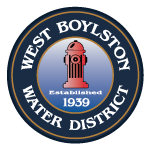How Much Water Do You Use?
Are you using more water than you think? Check your bill. You may be surprised to find how much water you are using and how much money you can save if you follow some of these conservation tips. Remember every drop counts!
Tips for Saving Water Inside:
- Repair leaking faucets and toilets! If your faucet drips at the rate of one drop/second, you can waste 2,700 gallons per year.
- Replace any old toilets, the largest water user inside your home. Newer toilets use less water per flush.
- Use your dishwasher and clothes washer only when you have a full load. If possible, replace older equipment with new Energy Star models with a Water Factor at or lower than 9.5.
- Take short showers rather than baths, with a low-flow shower head, of course.
- Install low-flow faucets and fixtures.
- Don't use running water to thaw frozen foods. Defrost overnight or in the microwave.
- Insulate your water pipes. You'll get hot water faster and won't waste water while it heats up.
- Store drinking water in the refrigerator. Don't let the tap run while waiting for cool water.
- Turn off the faucet while you shave, brush your teeth or hand-wash dishes.
Tips for Saving Water Outside:
- Reduce your lawn size, which will reduce the amount of water used for maintenance.
- Only water your lawn when absolutely necessary. Lawns need only one inch of water per week from all sources. If there is an inch of rain during the week, you don't need to water.
- Mulch around trees and shrubs and in your garden beds.
- Use native plants or those that use less water. Check with a local nursery for your best choices.
- Use an inexpensive rain gauge to measure how much rain or irrigation your yard has received.
- Adjust your sprinkler to only reach your lawn and plants - not the sidewalk, house or street. Don't water on windy days to reduce the amount of water lost to evaporation. Water slowly and deeply to allow the water to be absorbed.
- Use shut-off nozzles on hoses and automatic shut-off devices on irrigation systems.
- Check your equipment and fix leaky hoses or faucets.
- Limit your pesticide and fertilizer use. They will eventually find their way into your water supply.
- Abide by the Mandatory Use Restrictions.
